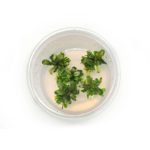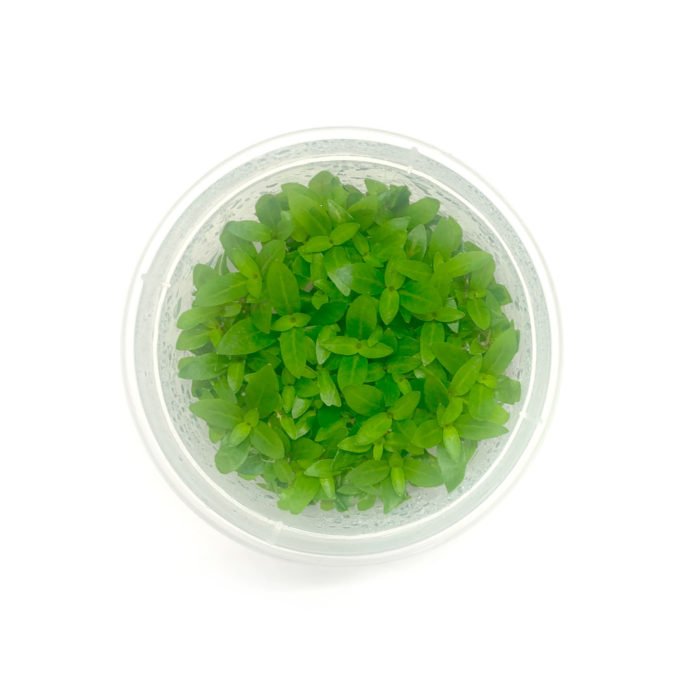-17%Hot






Bucephalandra pygmaea.
One of the most coveted plants for usage in the aquarium is the simple yet beautiful Buce plant (Bucephalandra). It’s a rheophytic aquatic plant and can naturally be found in the tropical rainforests of Borneo. It has an outstanding appearance, Bucephalandra is easy to care & forms an integral part of a good aquascape system. Buce plants use a strong root system to anchor themselves in high water flow and aren’t very well adapted to growing in soil. Instead, their roots are very effective at anchoring onto any surface, the more porous the better like the lava rock. Bucephalandra plants have a coping mechanism that works in such a way that if it detects a change in the water parameters it loses some of its leaves. This is the main reason why Bucephalandra in aquariums might lose some leaves. Because of some algae manifestation in the tank or even in fertilization changes also this tends to happen. Even if the Bucephalandra plant in your aquarium has lost all its leaves but the roots and rhisomes look healthy and firm to you, then you do not have anything to worry as the leaves will gradually come back in some time. Its considered as an undemanding aquarium plant. Bucephalandra species don’t require much to survive. Recommended water temperature between 21.5 °C – 28 °C or 71 °F – 82.5 °F and Well-filtered water with proper flow. Water pH levels ranging from 6 – 8. Some hardness (GH) is essential; 5 GH and above preferably. Bucephalandra does not require pressurized CO2 injection and nutrient dosing for survival. However, the provision of CO2 and the right level of nutrients will support its growth and promote leaf coloration. The measure of light you need for this plant depends mostly on what you want to do with it. The light demand is flexible. If it is just for ornamental purposes, low light would be the best decision. It will grow very slowly and you won’t see very intense coloration. Whereas if you desire quicker growth and better coloration you’ll need a medium to high light.
It is quite sad that including Bucephalandra many other exotic plants are heading towards extinction because of the deforestation. All we can do is hope that they find it in their hearts to preserve the natural habitats of such beauties such as Bucephalandras and many other plant species within their forests.
₹1,800 Original price was: ₹1,800.₹1,500Current price is: ₹1,500.
Out of stock
Out of stock
Payment Methods:
Bucephalandra pygmaea.
One of the most coveted plants for usage in the aquarium is the simple yet beautiful Buce plant (Bucephalandra). It?s a rheophytic aquatic plant and can naturally be found in the tropical rainforests of Borneo. It has an outstanding appearance, Bucephalandra is easy to care & forms an integral part of a good aquascape system. Buce plants use a strong root system to anchor themselves in high water flow and aren?t very well adapted to growing in soil. Instead, their roots are very effective at anchoring onto any surface, the more porous the better like the lava rock. Bucephalandra plants have a coping mechanism that works in such a way that if it detects a change in the water parameters it loses some of its leaves. This is the main reason why Bucephalandra in aquariums might lose some leaves. Because of some algae manifestation in the tank or even in fertilization changes also this tends to happen. Even if the Bucephalandra plant in your aquarium has lost all its leaves but the roots and rhisomes look healthy and firm to you, then you do not have anything to worry as the leaves will gradually come back in some time. Its considered as an undemanding aquarium plant. Bucephalandra species don?t require much to survive. Recommended water temperature between 21.5 ?C ? 28 ?C or 71 ?F ? 82.5 ?F and Well-filtered water with proper flow. Water pH levels ranging from 6 ? 8. Some hardness (GH) is essential; 5 GH and above preferably. Bucephalandra does not require pressurized CO2 injection and nutrient dosing for survival. However, the provision of CO2 and the right level of nutrients will support its growth and promote leaf coloration. The measure of light you need for this plant depends mostly on what you want to do with it. The light demand is flexible. If it is just for ornamental purposes, low light would be the best decision. It will grow very slowly and you won?t see very intense coloration. Whereas if you desire quicker growth and better coloration you?ll need a medium to high light.
It is quite sad that including Bucephalandra many other exotic plants are heading towards extinction because of the deforestation. All we can do is hope that they find it in their hearts to preserve the natural habitats of such beauties such as Bucephalandras and many other plant species within their forests.
In stock
In stock
Out of stock
No account yet?
Create an AccountGet Support
Reviews
Clear filtersThere are no reviews yet.